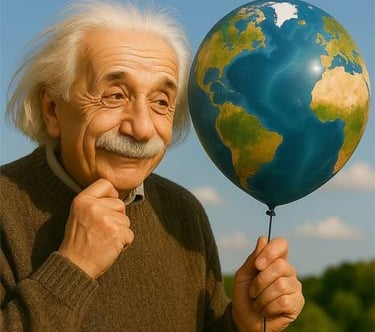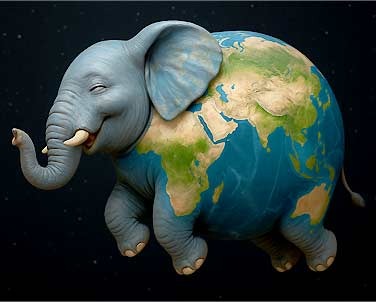What would happen if everyone on Earth jumped at the same time?
The Great Leap: What If Everyone Jumped?
Here, on this extraordinary blue sphere, teeming with life, humanity stands as a truly remarkable phenomenon. Nearly eight billion souls, spread across continents, yet bound by a shared home. One cannot help but ponder, in a flight of fancy, what might occur if this vast collective, in a single, unified moment, decided to… jump.
Imagine it, if you will. From the bustling heart of our cities to the quietest, most remote village, every man, woman, and child, poised. And then, in perfect synchrony… they leap. A global exhalation of effort, a fleeting moment of airborne humanity.
The immediate effect, for each individual, is familiar. A push against the ground, a brief ascent, followed by the inevitable return. But what of the Earth itself? Our planet, a colossal entity of rock and metal, weighing in at a staggering six sextillion tones.
Each jump, you see, exerts a force upon the Earth. Newton's third law, that elegant principle of physics, dictates that for every action, there is an equal and opposite reaction. So, as eight billion people push downwards to propel themselves skywards, they impart a tiny nudge to the planet.




Now, the combined mass of humanity is, by our standards, immense – somewhere in the region of five hundred billion kilograms. A formidable figure. Yet, when juxtaposed with the sheer colossal mass of the Earth, it becomes almost infinitesimally small. The ratio is akin to a single bacterium resting upon a great blue whale.
So, as humanity leaps, the Earth does indeed recoil. But this movement, this planetary shudder, would be so minuscule as to be almost immeasurable. Perhaps the width of a single atom, or even less. Our world, in its immense inertia, would barely register the event. The energy imparted by our collective jump would dissipate almost instantaneously into the planet's vastness, a whisper lost in the thunderous symphony of geological forces that constantly shape our world.
And what of the landing? As gravity reasserts its gentle but unyielding grip, everyone returns to the surface. The energy of their descent is absorbed back into the ground. Locally, in densely populated areas, there might be a perceptible thud, a fleeting tremor underfoot, a sudden puff of dust. The sound, too, would be a curious cacophony – a brief, global roar that would ripple outwards, but again, quickly absorbed by the atmosphere and the landscape.
No catastrophic earthquakes, no dramatic shift in orbit. The Earth, in its majestic grandeur, would continue its silent journey through space, largely unperturbed.
What this curious thought experiment reveals, perhaps, is not a dramatic physical consequence, but a profound perspective. It underscores the almost incomprehensible scale of our planet, and our own, rather delicate, place upon it. A collective jump, a momentary shared action, highlighting both our numbers and our relative lightness in the grand cosmic ballet. A testament, indeed, to the robust and resilient nature of this Earth, our only home.
